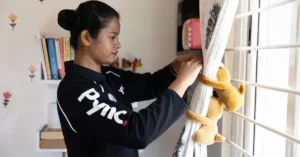Court orders, known as intervention orders, are intended to protect against violent crimes or threats of violence. In Australia, they are also referred to as arrested violence orders, or AVOs. Speaking specifically for Family Violence Intervention Orders (FVIOs), FVIO Melbourne is an excellent resource for anyone in need of guidance in navigating the intricate realm of intervention order law.
It is essential to know the nuances of intervention orders, especially for people whose safety or well-being is in jeopardy. You can ask the court for an intervention order to protect you if you’ve faced domestic violence or have been abused in any other way. If you have received orders, a lawyer may help you in seeking a protective order and can represent you in court.
Family violence is defined as abuse by a family member or by someone with whom the victim has a close relationship. FVIOs are there to shield victims from this kind of mistreatment. FVIOs work to shield that person from this kind of mistreatment.
Overview of Intervention Order Law
Intervention orders are frequently used in Australia when there is family violence, stalking, or concern for personal safety. These orders place specific constraints on the offending party that are likely to upset or hurt other people to prevent additional harm. A court may issue an intervention order as a legal measure to stop someone from acting in a certain way toward another person.
Types of Intervention Orders
There are different types of involvement orders:
- Stalking intervention orders (SIOs),
- Personal safety intervention orders (PSIOs),
- Family violence intervention orders (FVIOs)
Family violence intervention orders (FVIOs)
When someone makes a “family member” feel uncomfortable, that qualifies as familial violence. Small problems may begin, and as time goes on, things may get worse. It does not imply that negative things occur frequently. Intimate partner or domestic violence are other names for family violence.
Family violence can involve:
- Physical abuse includes hitting or pushing someone;
- Sexual abuse includes forcing someone to engage in sexual activity or have sex;
- emotional or psychological abuse includes serious name-calling, demeaning remarks,
- preventing someone from seeing friends or family;
- financial or economic abuse includes controlling someone’s money without their consent or forcing them to pay a dowry;
- controlling behavior includes forcing a family member into marriage.
Personal safety intervention orders (PSIOs)
People who need protection from harassment, stalking, or threats to their safety but are not related to the defendant or in the same area as they require PSIOs.
Orders for Workplace Intervention
To put an end to workplace bullying, harassment, and threats of violence, workplace intervention orders are issued. Bosses or staff who feel unsafe because of the actions of a greater colleague may request these orders.
How to Apply for an Intervention Order
In Melbourne, obtaining an intervention order typically involves the following steps:
- Getting Legal Counsel,
- Submitting an application,
- Temporary Directives,
- Last Hearing
Conclusion
Understanding the many kinds of orders that are available, how to get one, and the effects of breaking them is essential to navigating Melbourne’s intervention order laws. Intervention orders play a vital role in speaking and stopping harm in many situations. Through the guidance of prepared legal experts such as Pearson’s Lawyers, people can competently maneuver through these details and guarantee their security and welfare.






